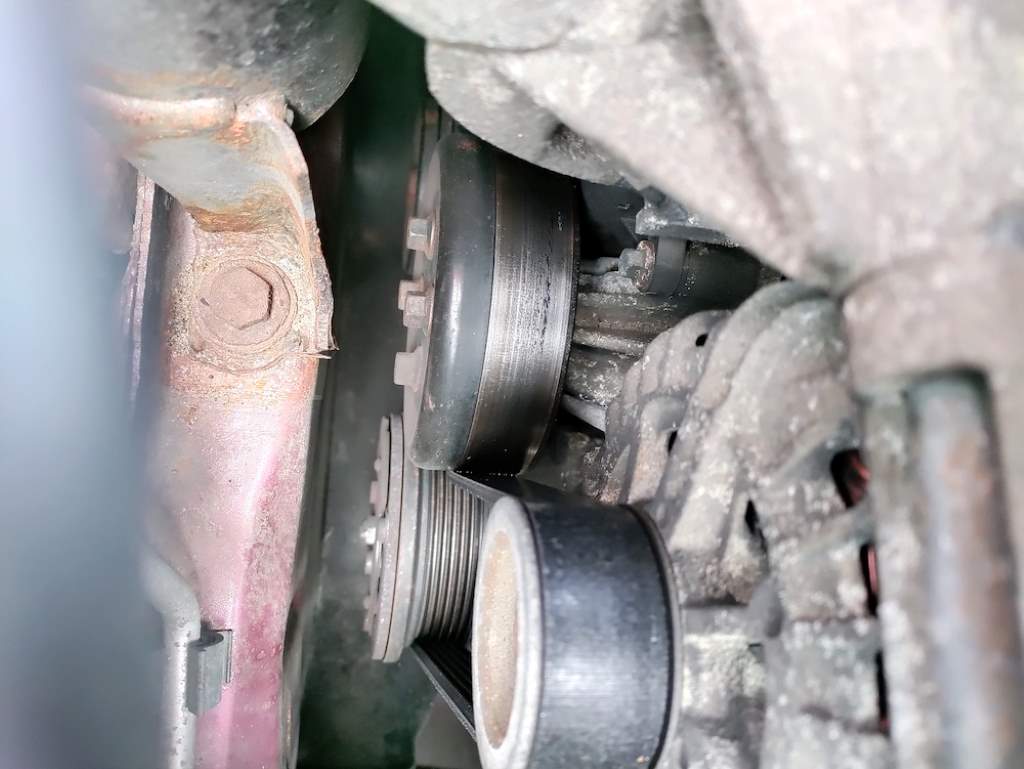When a car is moving, the engine turns over at a high rate of speed. This means many parts are moving, and a high pitched squeal from car when moving can happen when something is out of place.
We have years of experience fixing these issues, and we explain them better below.
Contents
High Pitched Squeal From Car When Moving: What Could It Be?
When you hear a high-pitched squealing noise coming from your car while it’s moving, it’s natural to feel concerned and wonder if there’s a serious issue. While there could be underlying problems, sometimes it’s a relatively simple problem to address.
It’s noticeable that many potential causes of this noise are related to car belts and pulleys. When these components malfunction, your car’s performance may be affected, and that annoying high-pitched squeal can disrupt your driving experience.
Some of the most common reasons for this noise when driving include a worn-out fan belt (serpentine belt), a failing alternator pulley, idler pulley slippage, misaligned suspension, a faulty V-belt, or worn-out wheel bearings.
Worn-Out Fan Belt (Serpentine Belt)
One of the most frequent culprits behind a high pitched squeal from car when moving is a worn-out fan belt, also known as the serpentine belt. When this belt deteriorates, it can lead to several car problems.
The serpentine belt plays a crucial role in power steering, so if it’s not functioning properly, steering becomes more challenging. Addressing this issue promptly is essential, making it a good starting point for inspections.
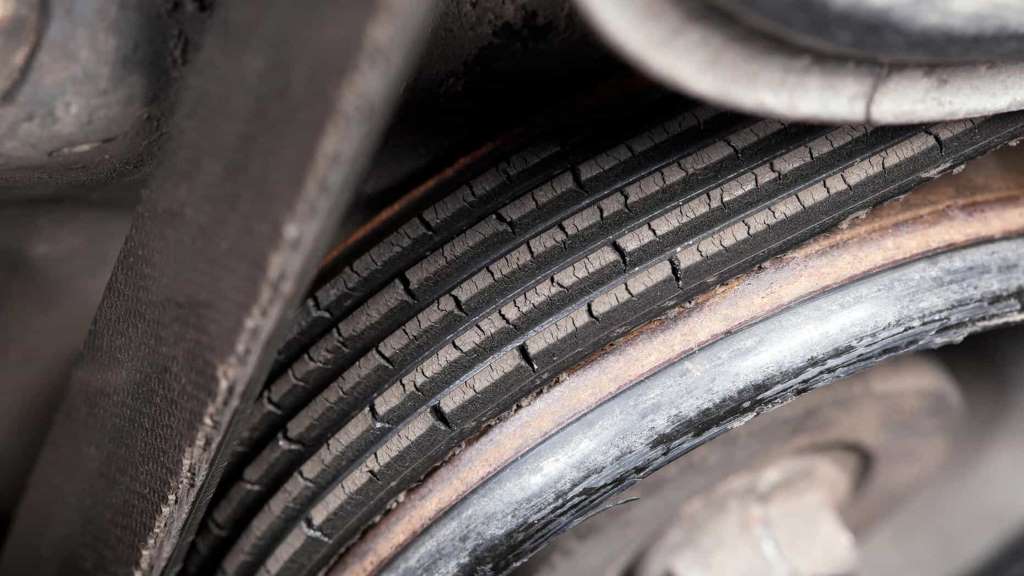
The belt may exhibit signs of wear, such as cracking or misalignment. Additionally, some vehicles have both a timing belt or timing chain, which can also cause similar problems. Failing belt pulleys can contribute to these issues as well.
Failing Alternator Pulley
A failing alternator pulley is another potential source of the high-pitched squeal while driving. This pulley contains bearings that can wear out, producing the distinct noise you hear.
When the alternator pulley goes bad, it should either be realigned or replaced entirely to ensure the belt runs smoothly. This issue generally has a minimal impact on vehicle performance.
Idler Pulley Slippage
Another concern related to the high-pitched squealing noise is idler pulley slippage. The idler pulley is a component of the engine that provides tension and guides the engine drive belt, ensuring proper power steering and water pump functions.
When this pulley slips, it can wobble and create the loud noise you’ve noticed. Driving with a slipping idler pulley is uncomfortable and should be addressed promptly.
Misaligned Suspension
A misaligned suspension can also be responsible for the high pitched squeal from car when moving. This misalignment can result from damage to the suspension system or excessive wear and tear.
Typically, worn-out springs or shock absorbers can lead to poor alignment. As a result, the system loses lubrication, causing loud, high-pitched squeals during movement.
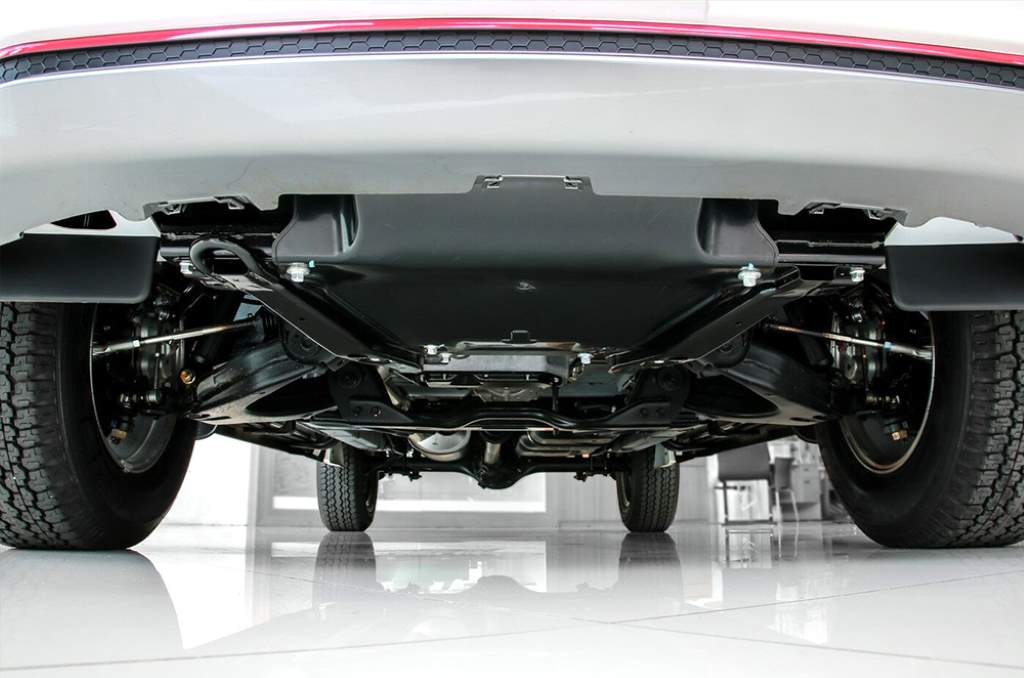
Faulty V-Belt
The V-belt contributes to drive system tension, and when it becomes faulty or misaligned, it can produce a high-pitched squeal. Misalignment of this belt is a common issue but is relatively easy to fix. Regular checks can help detect any tension-related problems.
Worn Wheel Bearings
Faulty wheel bearings can also be a source of the high-pitched squealing noise. This is a common issue in many cars and can be resolved by replacing the wheel bearing or even the wheels themselves.
The noise can vary depending on the vehicle’s speed, making it sometimes challenging to identify as the potential cause. Nevertheless, properly functioning wheel bearings are crucial for long journeys, such as road trips, and are essential for vehicle durability.
It’s worth noting that other areas of the vehicle, like the alternator pulley, may also use bearings, and similar noises can occur if any of these bearings near the pulleys or belts become worn or damaged.
Worn-out Brake Pads
Worn brake pads lead to reduced braking performance, vibrations, and potential rotor damage.
The high pitched squeal from car when moving is a warning sign of worn pads, and ignoring this issue can compromise your safety, increase stopping distances, and overheat your brakes. Regular brake pad inspection and replacement are essential for safe driving.
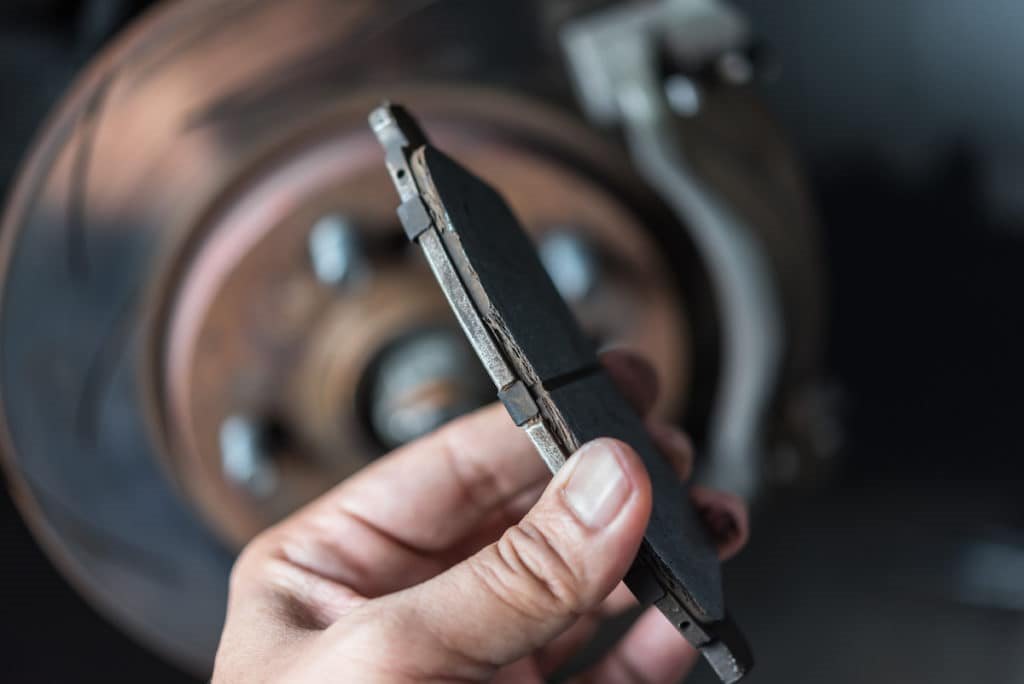
How To Address A High Pitched Squeal From Car When Moving
Fixing a high-pitched squeal in your car can be challenging due to the various potential causes. Here are some tips to help you tackle the issue effectively.
Identify the Problem
The first step is diagnosing the issue and pinpointing the source of the high-pitched squeal. Different situations, such as the noise occurring during startup versus acceleration, may suggest different causes.
To start, listen closely while driving to determine the general area of the sound. Once you’ve done that, safely park your car and inspect under the hood.
Replace the Serpentine Belt
In many cases, a worn-out serpentine belt is the culprit behind the squeal. Replacing it is often the most common fix.
The serpentine belt is typically secured in place by a retaining belt, and most modern cars use a single belt, which simplifies the removal and replacement process.
Lubricate the Belts
Applying additional lubrication to the belts and pulleys, including the alternator pulley, idler pulley, and v-belt, may help resolve the issue. Checking the belt tension, if possible, can also aid in identifying the problem.
However, belt tension adjustments may require specialized knowledge, leading us to our next recommendation.
Seek Professional Assistance
For more complex or severe issues, it’s advisable to consult a professional mechanic with the necessary expertise and tools. Professional help often proves cost-effective and allows for a quicker diagnosis and resolution of the high-pitched squeal.
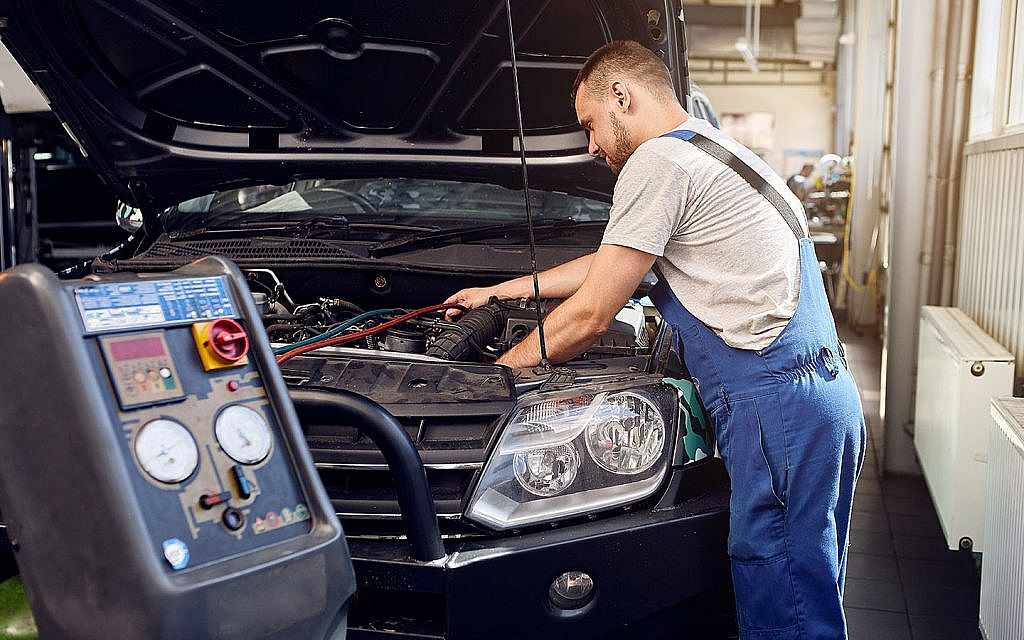
Is It Safe To Drive a Car Emitting a High-Pitched Squeal?
It is not safe to drive a car that produces a high-pitched squeal when driving. The source of the squeal can vary and may originate from the engine or another component within the vehicle. The uncertainty of the problem is concerning.
While some cars may emit this noise briefly during startup, persistent squealing after the engine has warmed up could signal issues with the serpentine belt, alternator pulley, or idler pulley, as previously mentioned.
Attempting to drive in such conditions is risky, as it may become challenging to control the vehicle, especially if the squeal affects components related to the power steering pump.
FAQs on High Pitched Squeal From Car When Moving
Is the high-pitched squeal a serious issue?
The seriousness of the issue depends on the underlying cause. If it’s related to the brakes, driving with worn-out brake pads or rotors can be dangerous, so it should be addressed promptly. A loose or damaged serpentine belt can lead to engine problems, so it’s best to get it fixed to prevent further damage.
Can I temporarily stop the squealing noise?
In the case of brake-related squealing, you may hear noise reduction temporarily by applying a brake lubricant or anti-squeal paste to the back of the brake pads. However, this is not a permanent solution, and you should still have the brakes inspected and repaired by a professional.
What’s the cost of repairing a high-pitched squeal issue?
The cost of repairs can vary widely depending on the cause and the extent of the problem. Brake pad replacement or resurfacing rotors may cost a few hundred dollars, while fixing a serpentine belt issue could range from $100 to $200 or more. It’s best to get a professional estimate for your specific situation.
Can weather conditions affect the squealing noise?
Extreme weather conditions, such as rain or cold temperatures, can temporarily affect brake performance and noise. However, if the squealing persists in normal weather conditions, it’s likely due to an underlying issue that needs attention.
Remember that it’s essential to address any unusual or persistent noises in your car promptly to ensure your safety and the longevity of your vehicle, including the uncommon high pitched squeal from car when moving. Always consult a professional mechanic for a proper diagnosis and repairs!
For more Car maintenance tips, follow Car From Japan!

